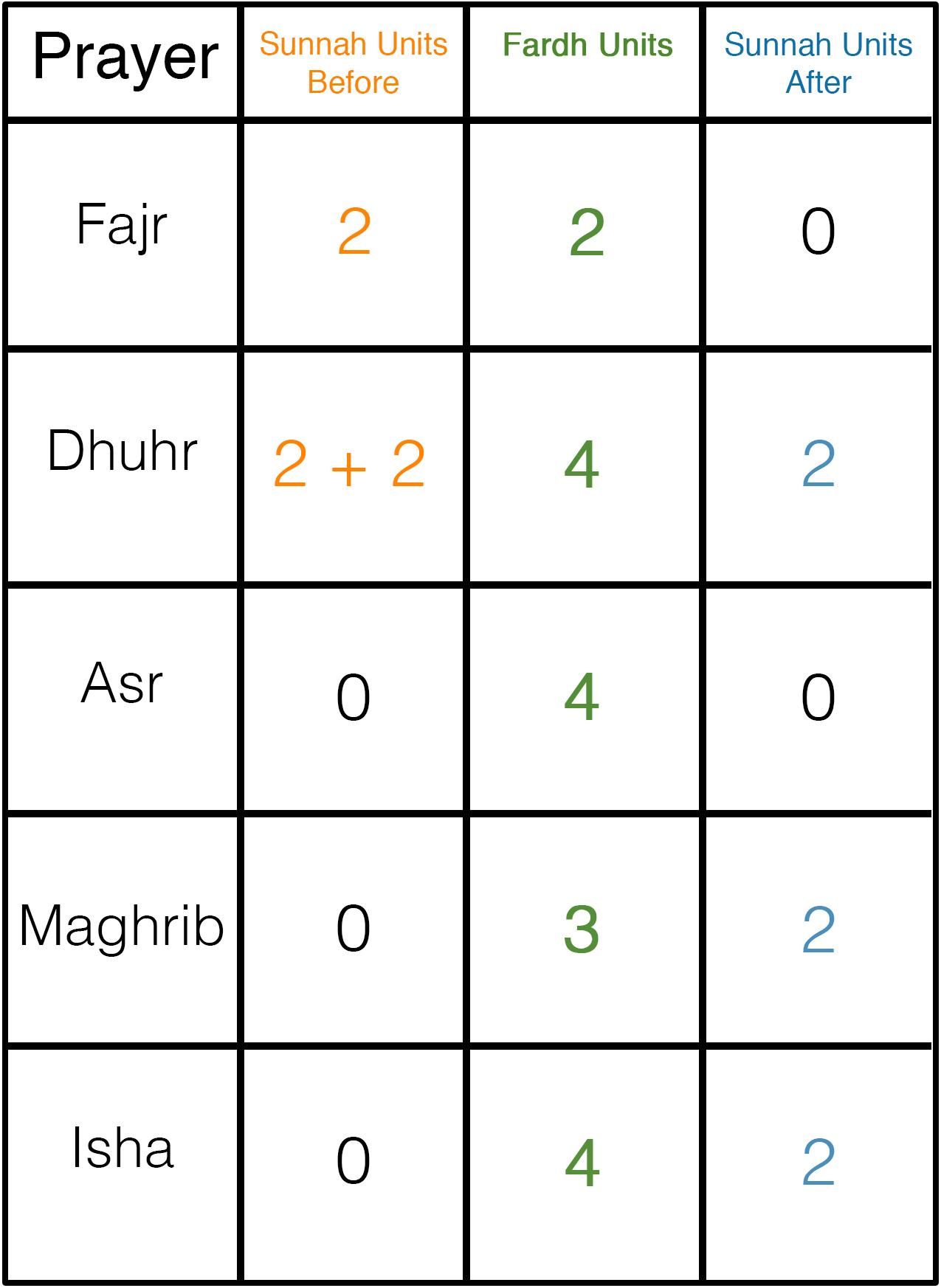The Format Of Obligatory Prayers
Muslims are required to pray five obligatory prayers every single day, at various times. This is mentioned in the Qur'an:
"Indeed, prayer has been decreed upon the believers - a decree of fixed times." [The Qur'an: an-Nisā 4:103]
The prayer times are mentioned in the following narrations:
'Abdullāh b. 'Amr ibn al-'Aas reported:
The Messenger of Allah (may the peace and blessings of Allah be upon him) was asked about the times of prayers. He said: The time for the morning prayer lasts as long as the first visible part of the rising sun does not appear, and the time of the noon prayer is when the sun moves past its zenith [and lasts as long as] it is not time for the afternoon prayer, and the time for the afternoon prayer is so long as the sun does not become pale and the first visible part of it does not set, and the time for the evening prayer is when the sun disappears and it lasts until the twilight is no more, and the time for the night prayer is up to midnight. [Muslim: 612]
The five obligatory prayers should be performed according to this order:
- Fajr - This prayer is performed after the true dawn (as opposed to the false dawn), and is two rak'ah (units of prayer) in length. The time for the prayer ends when the first part of the sun becomes visible on the horizon, just before sunrise.
- Dhuhr - This prayer is performed at the time of noon when the sun has moved past its highest point, and is four rak'ah in length. The time for this prayer ends at the beginning of the next prayer.
- Asr - This prayer is performed in the afternoon when an objects shadow is equal to it's height with four Fardh Rak'ah.
- Maghrib - This prayer is performed when the sun sets with three Fardh Rak'ah.
- 'Isha - This prayer is performed when the redness of the sunset disappears completely from the sky with Four Fardh Rak'ah.
Note that it is highly encouraged to pray the prayer at the earliest time, due to the following narration:
"The Prophet (may the peace and blessings of Allah be upon him) was asked: 'Which deed is the best?' So he said: 'Prayer at the beginning of its time.'" [at-Tirmidhi: 170]
However, it is permitted to delay it, as long as it does not go outside of the alloted time. The latest time that the prayer can be offered is such that one rak'ah is completed before the time for the next prayer.
Abū Hurayrah narrated that the Prophet (may the peace and blessings of Allah be upon him) said:
"Whoever catches up with a prostration of Fajr before the sun rises, then he has caught up with it; and whoever catches up with a prostration of 'Asr before the sun sets, then he has caught up with it." [an-Nasā'ī: 555]
You can find the prayer times for your locality on our partner site: www.salah.com
Bear in mind that some of these prayers have regular voluntary prayers to go with them for extra reward, this will be explained in the next section.
